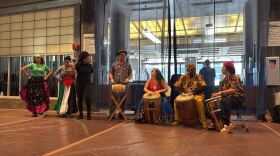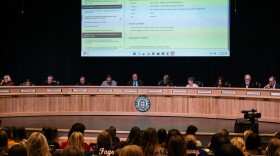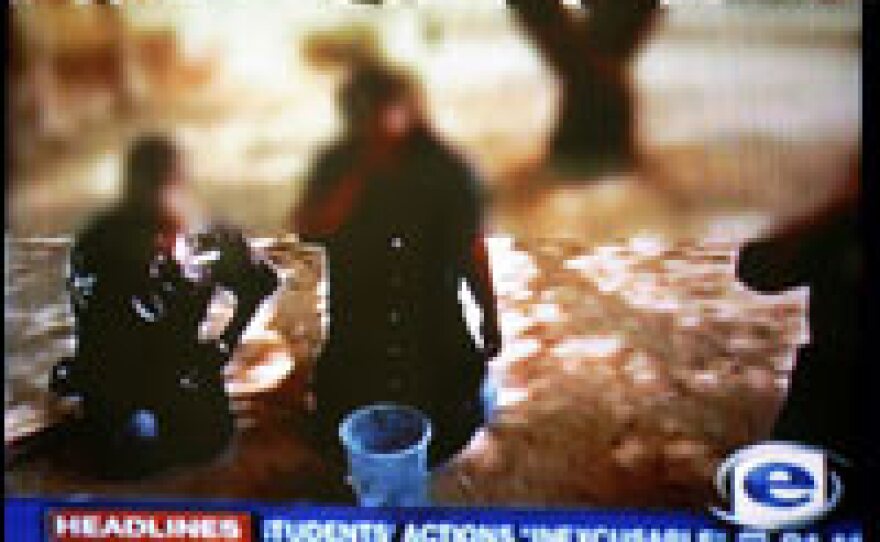
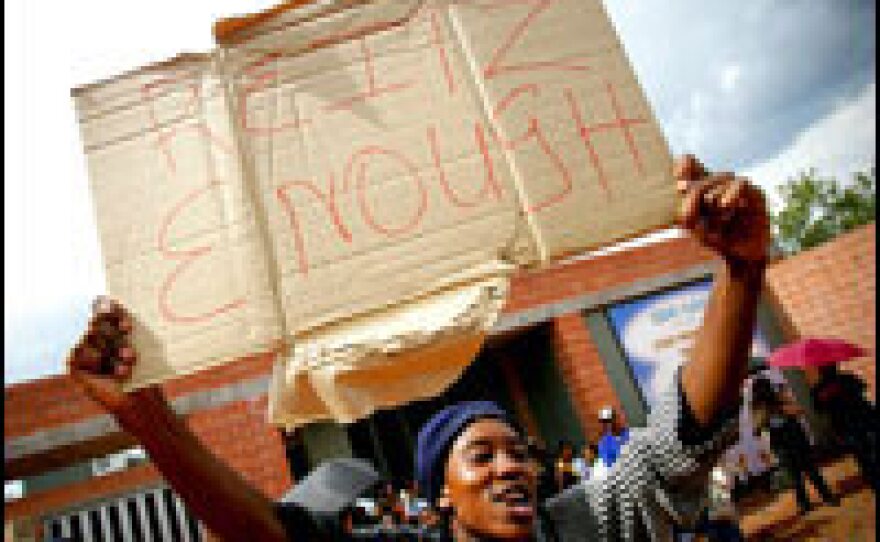
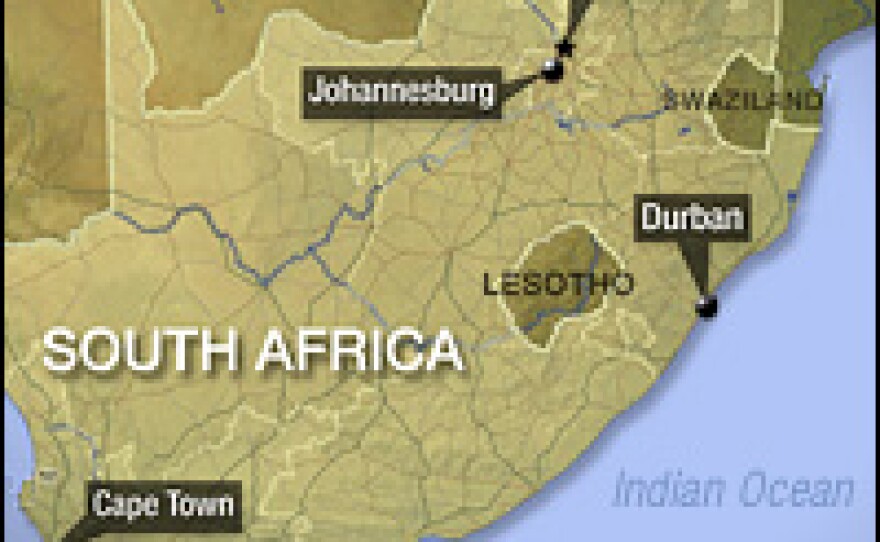
When Nelson Mandela became South Africa's first black president after the end of apartheid 14 years ago, he called his country a "rainbow nation." But instead of becoming the ethnically integrated society he envisioned, South Africa today continues to battle racism.
Some observers believe the social situation is worse than it was before the end of the country's system of racial segregation. And there is a worry that gridlock between the ruling party and the government is inhibiting the leadership's ability to deal with this issue.
Recent incidents that have drawn attention include a white youth going on a rampage and shooting four blacks, the discovery of a "whites only" toilet in a police precinct, and the publication of a disparaging column by a white writer imagining the nation before the arrival of the white man. The column included this musing: "Every so often a child goes missing from the village, eaten either by a hungry lion or a crocodile. The family mourns for a week or so and then has another child."
Outrage over the column led to the author's firing and his subsequent apology. However, no such apology was forthcoming from the four Afrikaner university students involved in the making of a highly publicized racist video that emerged in February.
Video Deepens Tension
In January, the administration of the formerly all-white University of the Free State located in Bloemfontein, the capital city of Free State province, began to racially integrate the university's student residences.
In reaction to the integration effort, four Afrikaner students recorded a mock initiation for black students moving into their dorm, the Reitz student residence complex. The video depicts the white students urinating on food and feeding it to black South Africans, who were workers from the university cleaning staff.
Today, black and white students say the atmosphere at the university is worse than it was before the incident.
"I actually get scared when I see a white person coming close to me. I try to make space so he can pass freely," says Palesa Masweu, a 22-year-old black senior. "I feel very threatened by them."
Jock Coetzer, a student who is Afrikaner, or of European ancestry, says he feels a tension on campus between white and black students since the emergence of the video. Coetzer recalls seeing protest posters put up by black students threatening to rape white women in revenge for the video.
Despite the controversy and subsequent upheaval, Ezekiel Morake, the black vice rector of the university, said integration of the dormitories will continue. The dorm building that housed the offending students has been closed, and the university plans to create a diversity institute to promote the integration efforts.
"We must tackle the absence perhaps of a shared vision, and the presence of fears and anguish in some groups," says university rector Frederick Fourie, who is also an Afrikaner.
Challenges to the 'Rainbow Nation'
Jody Kollapen, chairman of the South African Human Rights Commission, a national institution tasked with promoting and protecting human rights, says the University of the Free State case is not isolated. Kollapen points to postings on an online chat room from young whites asserting their whiteness and denigrating things associated with the black majority, including the government, the ruling party, the flag and soccer, which is associated by some as a black sport.
Kollapen says such attitudes are still rampant around the country and are older than apartheid, which became government policy in 1948.
"I think perhaps it was an unrealistic expectation of how fast we could achieve this ideal of a nonracial democratic society," Kollapen says. "We just sort of said, 'We're going to be OK.' And now we realize we're not so OK."
Fourie, the university rector, says that many still hold on to Mandela's notion of the rainbow nation. However, he says fulfilling that vision is going to take work and time.
"Rainbow is a good vision to have for this country," Fourie says. "I think parts of it are falling down. Parts haven't been constructed. And I think the challenge we have is to openly face that and have this fantastic vision, but say we've got to construct it still and to be open and honest about it."
Copyright 2022 NPR. To see more, visit https://www.npr.org. 9(MDAzMjM2NDYzMDEyMzc1Njk5NjAxNzY3OQ001))




